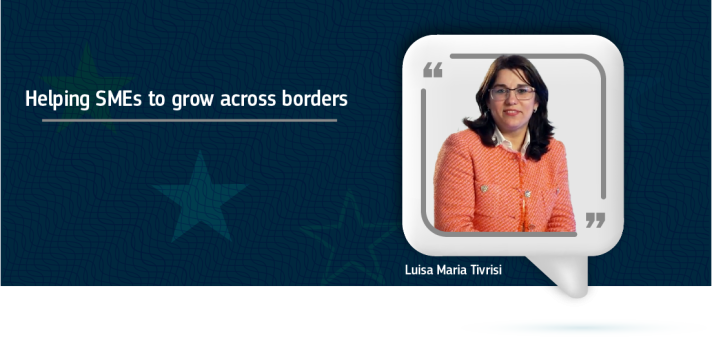Improving the business environment for small and medium-sized enterprises (SMEs) is one of the key priorities of the Commission. SMEs represent 99% of Europe's businesses. Recently, the Commission adopted a series of initiatives to address their needs in the current economic environment. The SME Relief package put forward proposes new measures that will provide short-term relief, boost SMEs' long-term competitiveness, and strengthen fairness in the business environment across the Single Market.
We talked to Luisa Maria Tivrisi, Policy Officer in the Directorate-General for Taxation and Customs Union at the European Commission to learn more about one of the proposals which aims to put in place ground-breaking new rules to reduce tax compliance barriers for SMEs, micro-businesses and start-ups who want to grow into other EU markets more easily.
Why is the Head Office Taxation System proposal needed?
The Head Office Taxation System will simplify tax compliance obligations for SMEs that wish to operate cross-border. The system is a one-stop-shop framework for income taxation.
Today, SMEs have to file tax returns and pay tax in all Member States where they have a taxable presence (permanent establishment(s)). That means they need to comply with tax rules in up to 27 Member States, which can eventually become costly. SMEs end up spending about 2.5% of their turnover in tax compliance. This creates a barrier to expanding cross-border, particularly at the start of their business abroad.
Under this proposal, SMEs would need to comply with the tax rules of only one tax administration – that of the head office.
How would the Head Office Taxation System work in practice?
The Head Office Taxation System is not mandatory for SMEs. If qualifying SMEs choose to opt into the system, they need to apply in the Member State of their head office. If they meet the requirements, they will be granted the possibility to use the one-stop-shop.
In more concrete terms, the one-stop-shop would allow them to file one single tax return with the tax administration of their head office for all their permanent establishments. The tax administration of their head office would also collect the tax due in the Member State of the permanent establishment and then transfer the required amounts to that Member State.
Could all SMEs opt into the Head Office Tax System?
No. Under the proposal, the rules concern only standalone SME entities with permanent establishments, not already-existing SME groups with subsidiaries.
Once an SME chooses to apply the new rules, it would have to remain under this system for five fiscal years, unless the Head Office changes residence in the meantime, or their foreign business activity grows exponentially in comparison to the business activity in the Member State of origin. In that case, the simplification rules cease to apply.
SMEs will be able to renew their choice every five years, and this without limit if they continue to meet the eligibility requirements. These provisions, as designed in the proposal, discourage potential tax planning practices, such as the deliberate transfer of the Head Office to a low-tax country.
However, if SMEs outgrow the scope of the Head Office Taxation System, and are no longer entitled to apply HOT, under certain conditions, they would be able to opt into the Business in Europe: Framework for Income Taxation (BEFIT). In this way, the two proposals are complementary.
What would be the benefits of the Head Office Taxation System?
If agreed by Member States, the Head Office Taxation System proposal could increase tax certainty, reduce compliance costs for businesses and distortions in the market that influence business decisions, while minimising the risk of double and over taxation and tax disputes. This would then further encourage investment and cross-border expansion in the EU without unnecessary tax related obstacles for SMEs.
This would be a major simplification for SMEs that opt into the Head Office Taxation System. The EU would also benefit from this. As a result of expected increase in SMEs expanding cross-border, the GDP is estimated to go up to 0.7%.
If agreed by Member States, what is important for the success of the new system?
The Commission would develop an IT solution with Member States, to facilitate the implementation of the system. Member States will then need to ensure a smooth cooperation and exchange of information.
Raising awareness about the benefits of the new system among the concerned SMEs is also important. The Commission will organise two webinars on 17 April and 19 June 2024 to present in more detail the new proposal and respond to questions. Recordings of the webinars will be made available in all EU languages shortly after the events.
What are the next steps?
The Commission’s proposal must be agreed unanimously by all EU Member States in the Council before it can become law. To find out more about the proposal, you can visit our website.
Details
- Publication date
- 5 April 2024
- Author
- Directorate-General for Taxation and Customs Union

